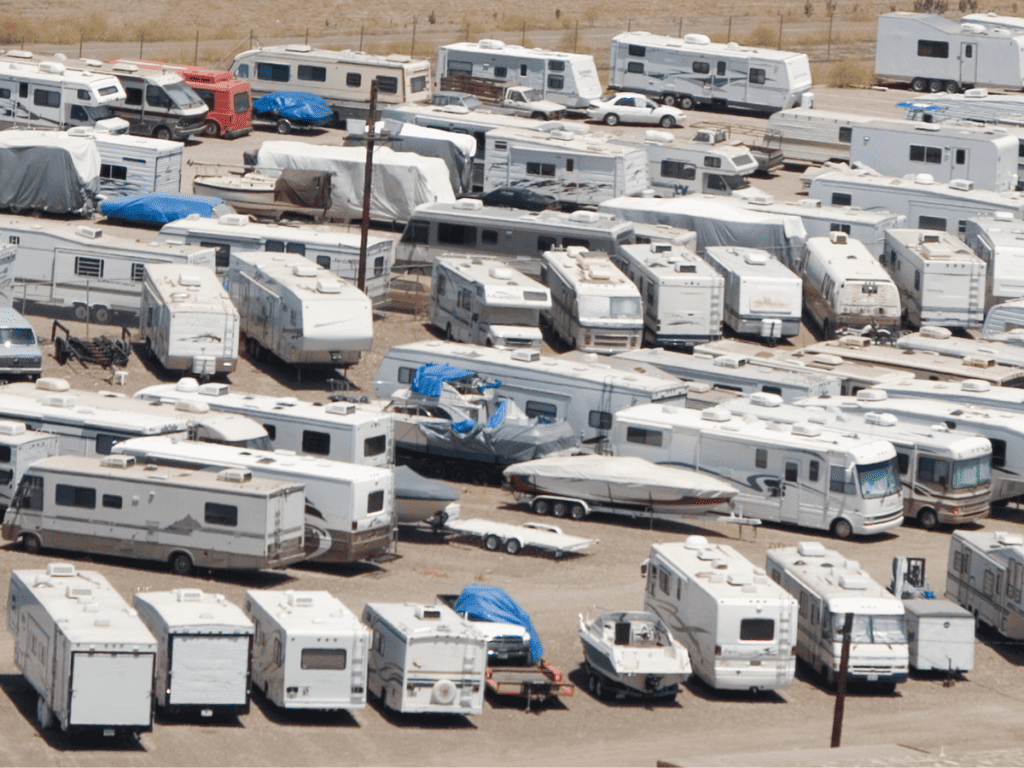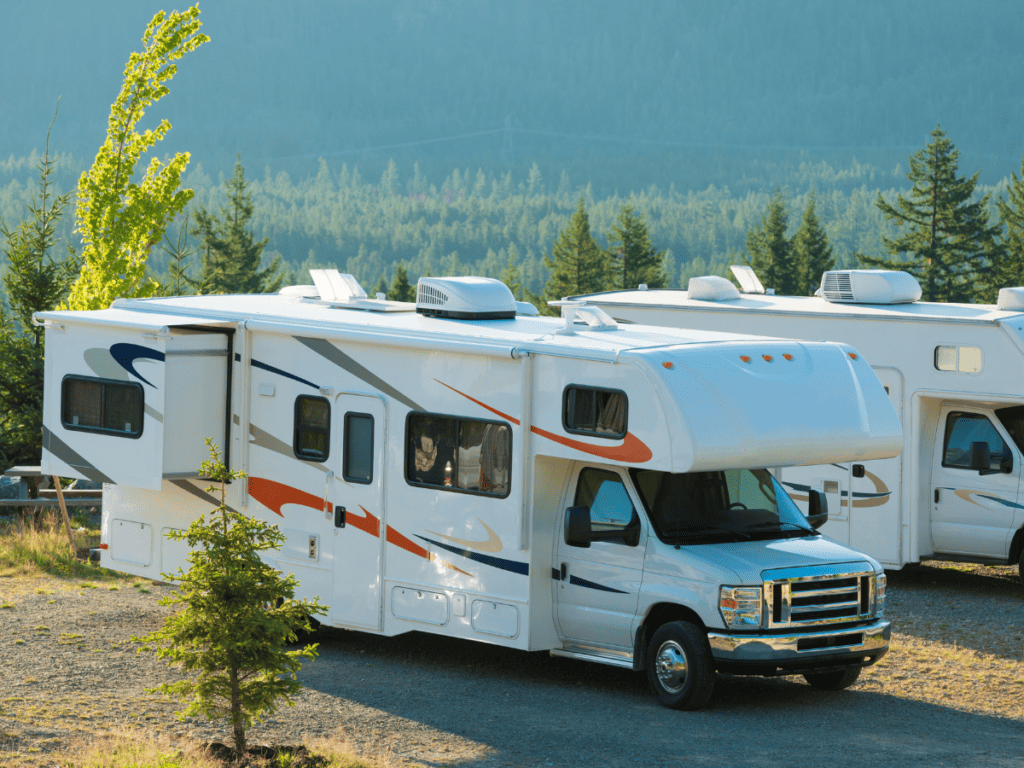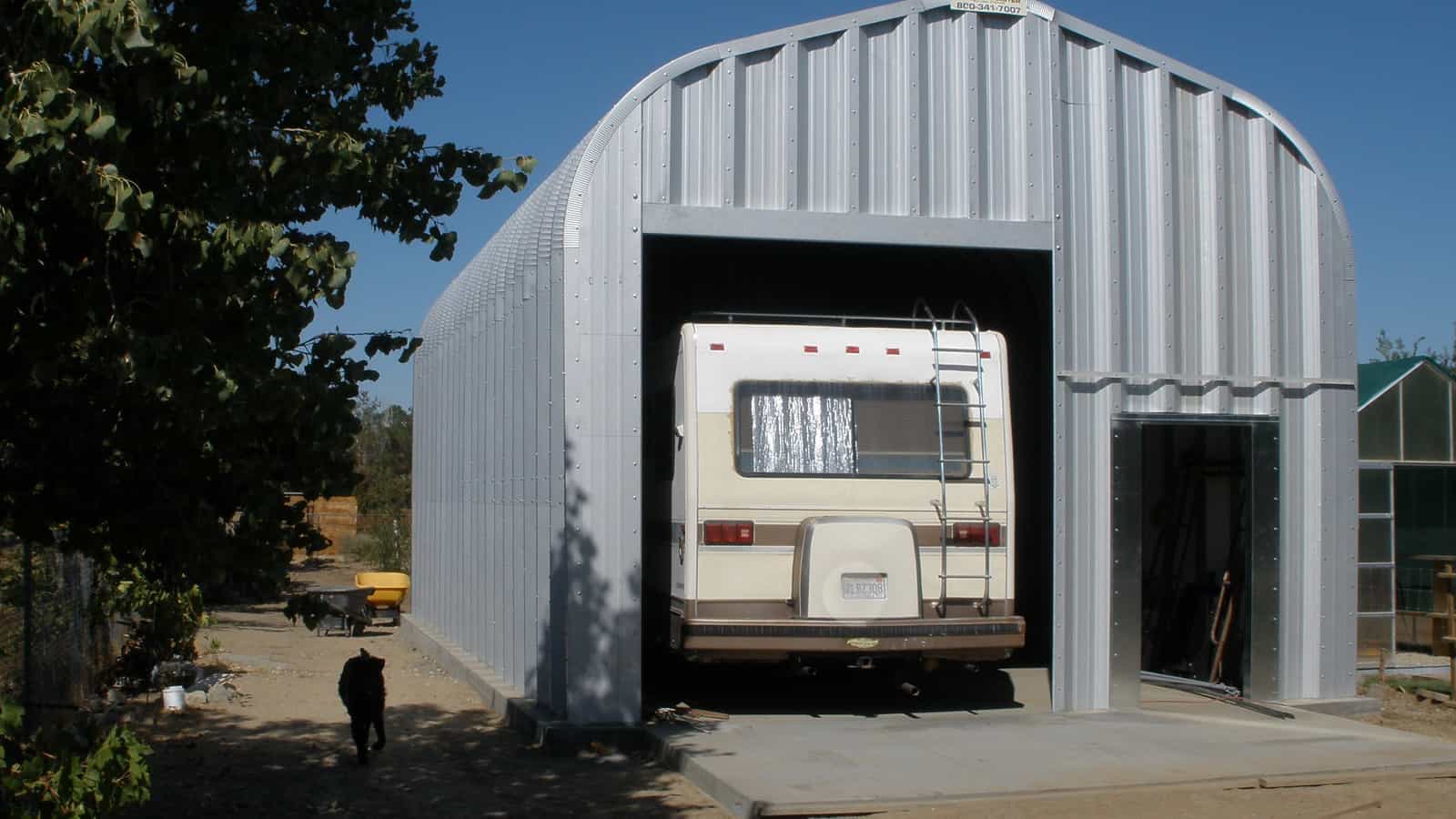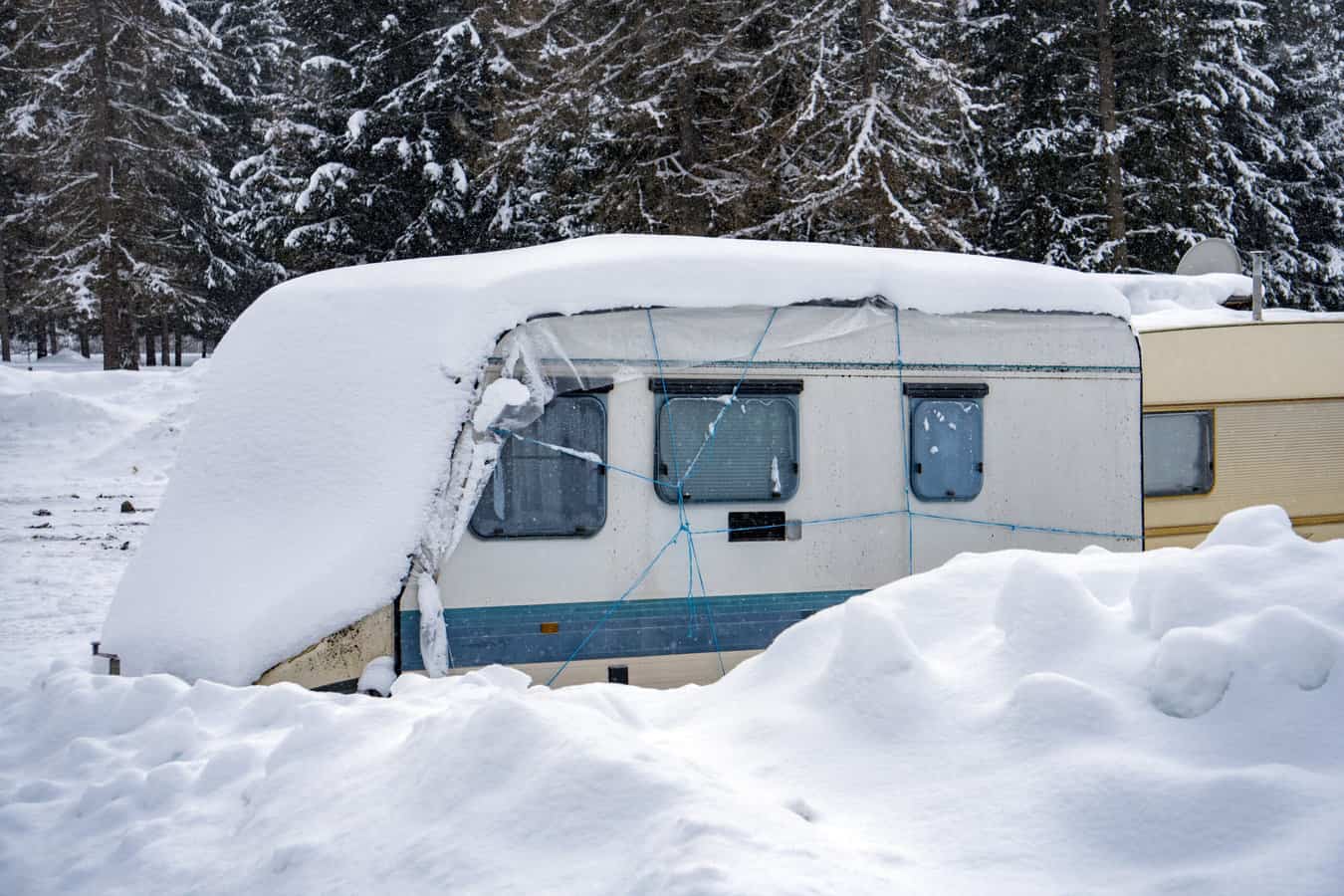
Are RV Storage Fees Worth The Money?
RVs can make our lives so much easier when camping and traveling—until it becomes time to store them away. Having to deal with RV storage can put some people off of owning an RV entirely. There are a few options you can choose from when planning to store your recreational vehicle at home or in paid storage. However, RV storage fees can be pretty expensive depending on your location and your needs. So, the question is: are RV storage fees worth it? Keep reading to find out!
Options for storing your RV
Before we dive into pricing, let’s check out our different options for RV storage. Outside of keeping your rig at home, these various storage sites can be found at storage facilities, campgrounds, or dedicated RV storage locations.
At-home RV storage
Some people may be able to store their RVs at home; other owners might not be so lucky. Small travel trailers may fit in your garage, but larger rigs must be parked in your driveway or backyard. Many HOAs have strict bylaws about recreational vehicles being parked within sight. Plus, if you store your rig out in the open, you’re at risk for theft, vandalism, and weathering. To combat this, you may have to build a carport or another structure to keep your camper in.
Outdoor storage lot
Typically, the most affordable RV storage method is an outdoor storage lot where you can park your RV behind a gate. While this option is more secure than keeping your rig in your driveway, it does not protect your rig from the weather.
Covered RV storage lot
Opting for a covered RV storage lot is an excellent combination of protection and affordability. Covered storage lots offer plenty of space for rigs of all sizes and offer a lot of protection from sun, rain, and snow. These lots (typically) are also monitored for security.
Indoor RV storage
While indoor storage lots offer the most security, they are also the most expensive option. Indoor storage is the best option for those who need to store their rig through harsh winters because they may be climate controlled. Owners of extra large motorhomes and fifth wheels may find it difficult to find indoor storage big enough for their rig.
Pros of Keeping Your RV in Storage & Paying for RV Storage Fees

Here are some pros for forking over money for RV storage fees.
No Major Additions to Your Home
To match the security of an RV storage site, you would likely have to undertake a major project at your home. Building a parking pad, extra large carport, RV garage, or widening your driveway will probably cost as much as a few years of storing your rig elsewhere.
Avoid problems with HOA
The rules of many HOAs restrict RV storage at home. Even if it is allowed under certain situations, HOAs are known for being very strict about neighborhood rules and may make building additions problematic. However, you won’t have to deal with your neighborhood’s HOA when storing your RV in a storage lot.
More Security
RV storage facilities will offer security for your RV. Usually, a gate operated by a code will only allow other owners on the property. An individual indoor storage unit will provide even more security. Peace of mind and security on your investment are solid reasons to warrant paying RV storage fees!
Weather Protection
If you opt for covered RV storage you’ll protect your camper from the elements. A covered spot will help protect from sun, rain, and snow. If you’re expecting frigid winters, scorching summers, or high wind speeds, an indoor storage lot will keep your trailer safe from everything mother nature may throw at it.
No Size Limits
Extra large rigs simply can’t be stored at home – there’s just no room. But at storage lots, they have spots for RVs of all sizes.
Cons of Keeping Your RV in Storage & Reasons NOT to Pay Storage Fees
Like everything, there is a flip side. Here are some reasons why you might not want to pay RV storage fees.
Monthly cost
To keep your RV in a safe storage facility, you’ll have to pay a monthly fee.
Less convenient
When your RV is in storage, it’s much less convenient to visit your rig. If you left something inside your trailer, want to work on some repairs, or pack it up to take a trip, you’ll have to drive over to the storage area. This can also make preparing to leave for a trip more complicated.
May not be fully weatherproof
Unless you’re willing to shell out the big bucks for a fully indoor storage lot, your spot won’t be fully weatherproof. Covered parking will protect your RV from most of the elements but not significant events like flooding or extreme wind. Plus, without temperature control, you’ll still need to winterize your RV for the colder months. Not being able to keep an eye on your RV during the months when the weather is harsh or monitor it for rodents might be reason enough not to pay RV storage fees.
Typical RV storage lot fees
Monthly fees for RV storage lots will depend on a few factors, including the location, size, and type of storage you’re looking for. As mentioned, indoor storage lots are likely to be the most expensive option. Large cities with limited parking facilities will also tend to be more expensive. Plus, the more space you need for your rig, the more you’ll have to pay.
- Outdoor storage lot: Depending on your location, you may find a simple outdoor storage lot or field for as little as $30 a month. Keep in mind that you often get what you pay for. Be sure to consider what type of security is offered at this budget. Secure outdoor lots start at around $50 per month.
- Covered RV storage lot: Covered storage lots also vary quite a bit in price based on the location and size of your RV. On average, you’ll spend between $50 and $150 per month for a covered RV storage spot.
- Indoor RV storage: The pricing of indoor storage fluctuates a lot and will depend not only on location and size but also on the amenities offered at the site. Some locations are built specifically for RV owners and offer features such as dump sites, wash-down areas, air compressors, ice makers, and more. Prices for small indoor spots can start around $175 and go up to over $500 per month for large vehicles.
Are RV storage lot fees worth it?
Unless you have an ideal setup at home that will keep your RV safe from theft, vandalism, and extreme weather, RV storage lot fees are worth it! While paying for a monthly spot may seem expensive, it doesn’t compare to the price of having to replace a stolen RV or fight with the HOA. Monthly storage fees will give you peace of mind knowing that your RV is stored away safely and securely. That way, it will always be waiting for you and ready to hit the road on your next adventure.
See what other RVers are saying
One of the best parts about RVing is engaging with the community of traveling enthusiasts. iRV2 forums allow folks to chat with other RVers online, and get other perspectives on everything RVing, including products, destinations, RV mods, and more.
Related articles:
- Where Can I Store My RV For Free?
- Forget RV Storage, Do This Instead
- How Much Does RV And Boat Storage Cost?




